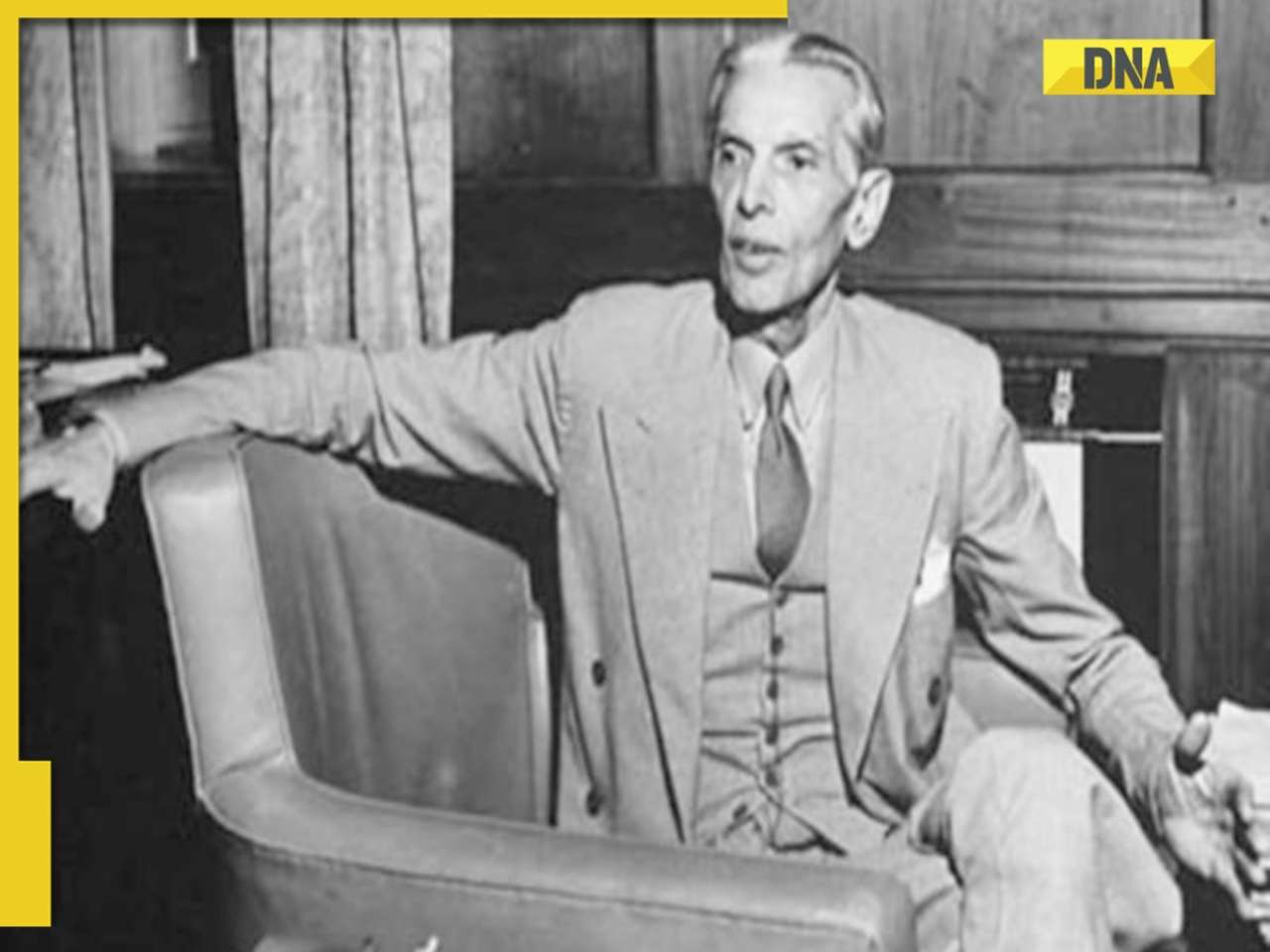In a new video posted on his YouTube channel, Johnson revealed the dark side of biohacking also highlighted how his anti-aging experiment failed.
Bryan Johnson, a tech entrepreneur, is now a prominent figure in the modern movement focused on achieving immortality. Johnson, who spends $2 million (around Rs 17 crore) each year on efforts to reverse his aging process, has become well-known for his use of advanced health techniques. He has undertaken procedures such as blood transfusions from his son and full plasma exchanges, attracting significant attention.
In a recent revelation, Bryan Johnson, 46, may have discovered an unexpected outcome, his efforts to slow aging may have inadvertently sped it up.
In a new video posted on his YouTube channel, Johnson revealed a significant error concerning rapamycin, a drug he had considered crucial to his health plan. This immunosuppressant, initially used for organ transplant patients and now popular in anti-aging circles, was something Johnson had been testing for five years.
Motivated by a 2009 study indicating rapamycin could increase the lifespan of mice by up to 14%, and a 2023 human trial where 65% of participants reported improved health while taking the drug, Johnson carefully modified his dosage to manage potential benefits and risks. However, instead of experiencing rejuvenation, the tech entrepreneur began to notice concerning side effects.
Johnson experienced several adverse effects, including mouth ulcers, slow wound healing, cholesterol imbalances, and elevated blood sugar levels. However, what truly concerned him was an increase in his resting heart rate, a key indicator of sleep and recovery. This gap between what was expected and what was actually happening led to a serious reassessment.
Adding to the concern was a recent study from Yale University, which challenged the positive views of rapamycin. Researchers found that the drug actually sped up biological aging across 16 epigenetic markers. Instead of maintaining youth, it might have been accelerating the aging process, at least for Johnson.
Facing the very outcome he’s spent millions to avoid, Johnson chose transparency over embarrassment. “To those of you laughing at home, I’m laughing with you,” he said with a wry smile, confirming he has since stopped taking the drug.
But this wasn’t a resignation — it was a reset. Johnson remains committed to experimenting, documenting, and, crucially, sharing. “It’s important to talk about both the successes and the failures,” he said. “That’s how we all learn.”
Bryan Johnson's self-funded mission is a public experiment in longevity's boundaries, along with its associated high-stakes risks. While some see him as a visionary, others are skeptical of his methods. Regardless of your perspective, one thing is clear: in the battle against aging, even the most carefully planned actions can potentially accelerate the process.
 Meet Nilufa Yasmine, who topped UGC NET June exam, failed twice before scoring a perfect 100, she is from...
Meet Nilufa Yasmine, who topped UGC NET June exam, failed twice before scoring a perfect 100, she is from... Joe Root surpasses Ricky Ponting to become 2nd highest run-scorer in Test history; trails Sachin Tendulkar by...
Joe Root surpasses Ricky Ponting to become 2nd highest run-scorer in Test history; trails Sachin Tendulkar by... Jinnah wanted THIS Muslim man to be first Finance Minister of Pakistan, he refused, his son is on Forbes list of billionaires
Jinnah wanted THIS Muslim man to be first Finance Minister of Pakistan, he refused, his son is on Forbes list of billionaires 65-year-old actor and his 37-year-old son have made their directorial debut in 2025, they are...., their first films are...
65-year-old actor and his 37-year-old son have made their directorial debut in 2025, they are...., their first films are... Good news for first-time employees, set to get Rs…; check eligibility and other details
Good news for first-time employees, set to get Rs…; check eligibility and other details Other than heart attacks or BP : 7 hidden heart conditions triggered by oily foods
Other than heart attacks or BP : 7 hidden heart conditions triggered by oily foods 7 most captivating space images captured by NASA you need to see
7 most captivating space images captured by NASA you need to see AI-remagined famous Bollywood father-son duos will leave you in splits
AI-remagined famous Bollywood father-son duos will leave you in splits 7 superfoods that boost hair growth naturally
7 superfoods that boost hair growth naturally Confused between Forex and Credit cards for your international trip? Learn which saves more
Confused between Forex and Credit cards for your international trip? Learn which saves more Tata Harrier EV Review | Most Advanced Electric SUV from Tata?
Tata Harrier EV Review | Most Advanced Electric SUV from Tata? Vida VX2 Plus Electric Scooter Review: Range, Power & Real-World Ride Tested!
Vida VX2 Plus Electric Scooter Review: Range, Power & Real-World Ride Tested! MG M9 Electric Review | Luxury EV with Jet-Style Rear Seats! Pros & Cons
MG M9 Electric Review | Luxury EV with Jet-Style Rear Seats! Pros & Cons Iphone Fold: Apple’s iPhone Fold Could Solve Samsung’s Biggest Foldable Problem | Samsung Z Fold 7
Iphone Fold: Apple’s iPhone Fold Could Solve Samsung’s Biggest Foldable Problem | Samsung Z Fold 7 Trump News: Congress Seeks Answers On Trump's Alleged Mediation In Operation Sindoor
Trump News: Congress Seeks Answers On Trump's Alleged Mediation In Operation Sindoor Jinnah wanted THIS Muslim man to be first Finance Minister of Pakistan, he refused, his son is on Forbes list of billionaires
Jinnah wanted THIS Muslim man to be first Finance Minister of Pakistan, he refused, his son is on Forbes list of billionaires After India-UK FTA, New Delhi to begin talks with THIS country, because...
After India-UK FTA, New Delhi to begin talks with THIS country, because... Indian billionaire Sunil Mittal earns Rs 13499163600 profit from this country, not India, UK; net worth reaches Rs...
Indian billionaire Sunil Mittal earns Rs 13499163600 profit from this country, not India, UK; net worth reaches Rs... UPI Alert! New UPI rules to come in effect from..., know how it will affect GPay, PhonePe, Paytm users
UPI Alert! New UPI rules to come in effect from..., know how it will affect GPay, PhonePe, Paytm users  RBI Governor Sanjay Malhotra makes BIG statement on free UPI transactions, says 'some cost...'
RBI Governor Sanjay Malhotra makes BIG statement on free UPI transactions, says 'some cost...' Ashish Chanchlani looks dashing as he drops latest photos from Italy, fans say 'Tom Cruise fail hai aapke saamne'
Ashish Chanchlani looks dashing as he drops latest photos from Italy, fans say 'Tom Cruise fail hai aapke saamne' Are these five vintage car museums in India a must-visit for every automobile lover?
Are these five vintage car museums in India a must-visit for every automobile lover? Riddhima Kapoor Sahni looks dreamy in pastel gold embroidered ensemble as she walks for Suneet Varma at IWC 2025; SEE PICS
Riddhima Kapoor Sahni looks dreamy in pastel gold embroidered ensemble as she walks for Suneet Varma at IWC 2025; SEE PICS Malaika Arora grabs attention with her street style moment, dons oversized denims, white tank top, luxurious mini bag worth Rs…
Malaika Arora grabs attention with her street style moment, dons oversized denims, white tank top, luxurious mini bag worth Rs… Raksha Bandhan 2025: Bollywood's sweetest 'muh-bole' sibling bonds that celebrate rakhi beyond blood
Raksha Bandhan 2025: Bollywood's sweetest 'muh-bole' sibling bonds that celebrate rakhi beyond blood Good news for first-time employees, set to get Rs…; check eligibility and other details
Good news for first-time employees, set to get Rs…; check eligibility and other details Air India sees another mid-air scare as Mumbai-bound flight returns to Jaipur minutes after takeoff due to...
Air India sees another mid-air scare as Mumbai-bound flight returns to Jaipur minutes after takeoff due to... Delhi-Meerut RRTS: Namo Bharat train timings changed for July 27 due to...; to start at...
Delhi-Meerut RRTS: Namo Bharat train timings changed for July 27 due to...; to start at... Indian Railways takes BIG step, successfully tests country's first-ever...; Ashwini Vaishnaw shares update, check details
Indian Railways takes BIG step, successfully tests country's first-ever...; Ashwini Vaishnaw shares update, check details J-K: Agniveer loses life, two soldiers injured in landmine blast near LoC in Poonch
J-K: Agniveer loses life, two soldiers injured in landmine blast near LoC in Poonch Meet Nilufa Yasmine, who topped UGC NET June exam, failed twice before scoring a perfect 100, she is from...
Meet Nilufa Yasmine, who topped UGC NET June exam, failed twice before scoring a perfect 100, she is from... Meet woman, daughter of vegetable vendor who cracked UPSC, her mother mortgaged gold for her education, her AIR is…
Meet woman, daughter of vegetable vendor who cracked UPSC, her mother mortgaged gold for her education, her AIR is… Meet woman, who cracked IIT with full-time job, secured impressive AIR of...; now works at Bill Gates' Microsoft as...
Meet woman, who cracked IIT with full-time job, secured impressive AIR of...; now works at Bill Gates' Microsoft as... Meet woman, couldn't speak English, once worked at Ratan Tata's TCS, cleared ISRO, BARC exams; later cracked UPSC with AIR..., she is...
Meet woman, couldn't speak English, once worked at Ratan Tata's TCS, cleared ISRO, BARC exams; later cracked UPSC with AIR..., she is... Meet woman, 'beauty with brain', who left medical studies, cracked UPSC exam not once but twice with AIR..., she is from...
Meet woman, 'beauty with brain', who left medical studies, cracked UPSC exam not once but twice with AIR..., she is from... Maruti Suzuki's e Vitara set to debut electric market at Rs..., with range of over 500 km, to launch on...
Maruti Suzuki's e Vitara set to debut electric market at Rs..., with range of over 500 km, to launch on... This is world’s most expensive wood, cost of 1kg wood is more than gold, its name is..., is found in...
This is world’s most expensive wood, cost of 1kg wood is more than gold, its name is..., is found in... This luxury car is first choice of Indians, even left BMW, Jaguar, Audi behind in sales, it is...
This luxury car is first choice of Indians, even left BMW, Jaguar, Audi behind in sales, it is... Kia India unveils Carens Clavis: Check features, design changes, price and more; bookings open on...
Kia India unveils Carens Clavis: Check features, design changes, price and more; bookings open on... Tesla CEO Elon Musk launches most affordable Cybertruck, but it costs Rs 830000 more than older version, it is worth Rs...
Tesla CEO Elon Musk launches most affordable Cybertruck, but it costs Rs 830000 more than older version, it is worth Rs...




)
)
)
)
)
)
)
)
)
)
)
)
)
)
)
)








